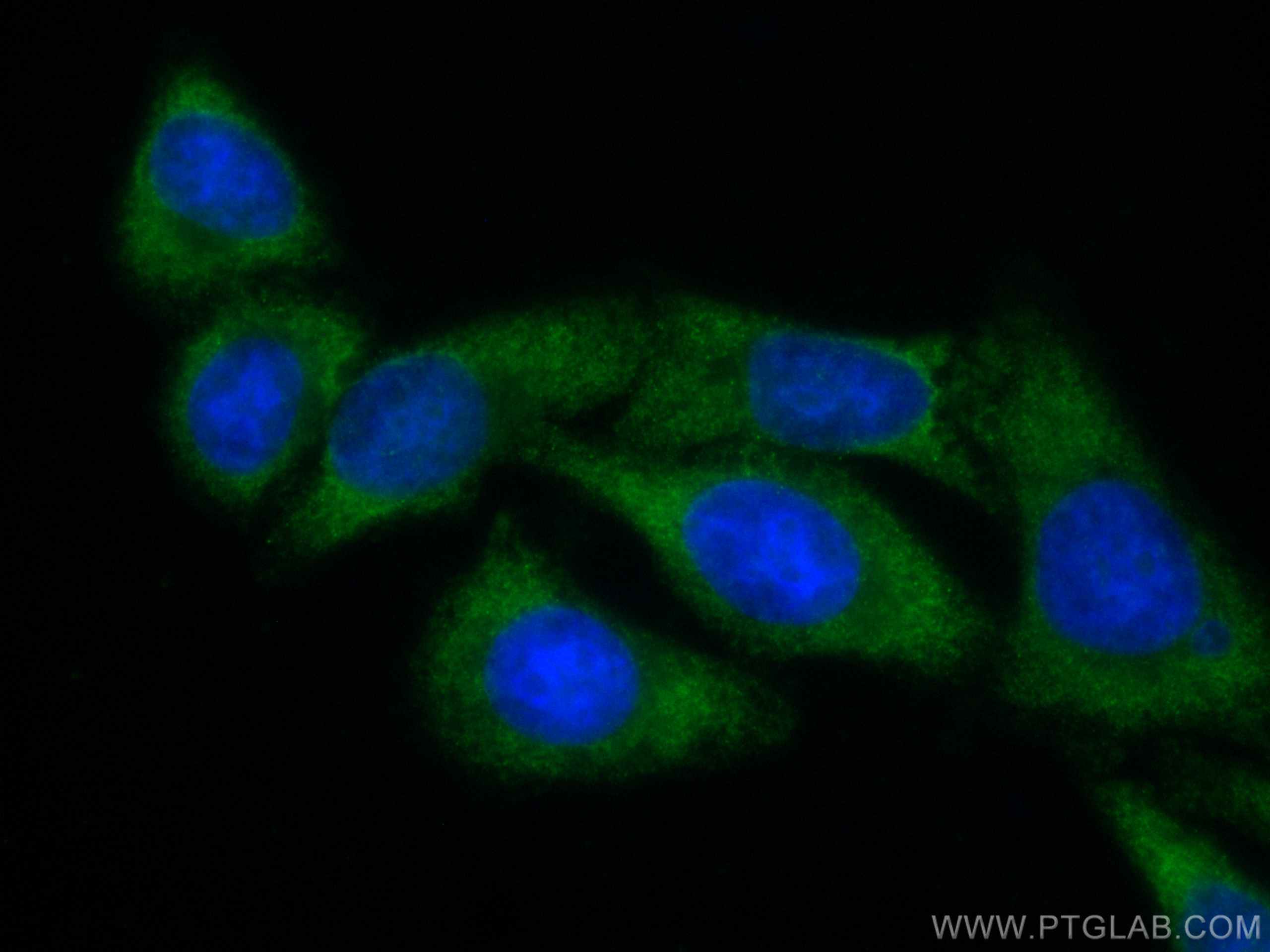CoraLite® Plus 488-conjugated RPS14 Monoclonal antibody
RPS14 Monoclonal Antibody for IF
Host / Isotype
Mouse / IgG2b
Reactivity
Human, mouse, rat
Applications
IF
Conjugate
CoraLite® Plus 488 Fluorescent Dye
CloneNo.
3D5H5
Cat no : CL488-67566
Synonyms
Validation Data Gallery
Tested Applications
| Positive IF detected in | HepG2 cells |
Recommended dilution
| Application | Dilution |
|---|---|
| Immunofluorescence (IF) | IF : 1:50-1:500 |
| It is recommended that this reagent should be titrated in each testing system to obtain optimal results. | |
| Sample-dependent, Check data in validation data gallery. | |
Product Information
CL488-67566 targets RPS14 in IF applications and shows reactivity with Human, mouse, rat samples.
| Tested Reactivity | Human, mouse, rat |
| Host / Isotype | Mouse / IgG2b |
| Class | Monoclonal |
| Type | Antibody |
| Immunogen | RPS14 fusion protein Ag30032 |
| Full Name | ribosomal protein S14 |
| Calculated Molecular Weight | 16 kDa |
| Observed Molecular Weight | 16 kDa |
| GenBank Accession Number | BC003401 |
| Gene Symbol | RPS14 |
| Gene ID (NCBI) | 6208 |
| RRID | AB_2919502 |
| Conjugate | CoraLite® Plus 488 Fluorescent Dye |
| Excitation/Emission Maxima Wavelengths | 493 nm / 522 nm |
| Form | Liquid |
| Purification Method | Protein A purification |
| Storage Buffer | PBS with 50% Glycerol, 0.05% Proclin300, 0.5% BSA, pH 7.3. |
| Storage Conditions | Store at -20°C. Avoid exposure to light. Aliquoting is unnecessary for -20oC storage. 20ul sizes contain 0.1% BSA. |
Background Information
The mammalian ribosome consists of 4 RNA species and approximately 80 different proteins. The ribosomal proteins are encoded by complex gene families that include at least 1 active intron-containing gene and multiple processed pseudogenes[ PMID 3785212]. The RPS14 gene, encoding a ribosomal protein that belongs to the 40S ribosome, and mapping to the commonly deleted region (CDR) of the 5q- syndrome, shows haploinsufficiency in the CD34+ cells of patients with this disorder[PMID:22430631].
Protocols
| Product Specific Protocols | |
|---|---|
| IF protocol for CL Plus 488 RPS14 antibody CL488-67566 | Download protocol |
| Standard Protocols | |
|---|---|
| Click here to view our Standard Protocols |


